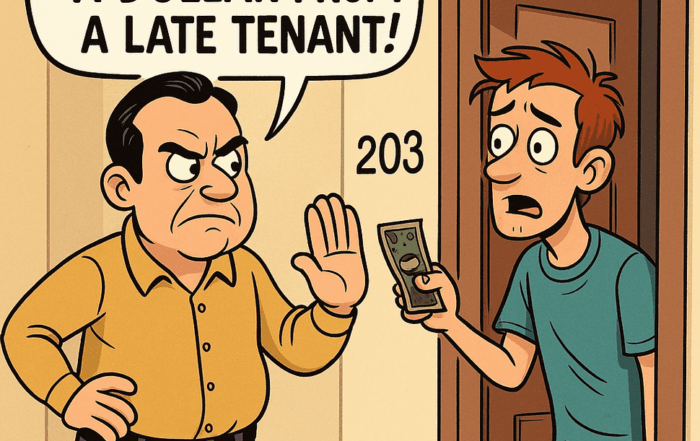When investing in rental properties, especially in hot climates like Tampa, Florida, air conditioning (AC) is a crucial aspect to consider. A recent online discussion among real estate investors highlighted different perspectives on whether to install air conditioning units, specifically mini-splits, or to let tenants provide their own. This article delves into the pros and cons of these options, drawing on the insights shared by experienced investors.
Options for Air Conditioning
Window Units Provided by Landlords
Advantages:
- Cost Savings: Compared to more expensive systems like central air or mini-splits, window units have a lower initial cost.
- Quick Installation: Window units can be installed quickly and with minimal tenant disruption.
- Individual Control: Tenants can control the cooling of their individual units, potentially lowering overall energy use.
Disadvantages:
- Safety Concerns: Window units can pose a risk if not installed correctly, potentially falling and causing injury or property damage.
- Aesthetic and Functional Issues: Window units can be unsightly and may not cool the space as efficiently as other systems.
- Maintenance Responsibility: Although the initial cost is lower, landlords must maintain these units, which can lead to additional ongoing expenses.
Mini-Split Systems Installed by Landlord
Advantages:
- Enhanced Property Appeal: Mini-splits can make the property more attractive to potential tenants who appreciate not having to provide their own AC units.
- Efficiency and Aesthetics: Mini-splits are generally more efficient and visually appealing compared to window units.
Disadvantages:
- Installation and Maintenance Costs: Mini-splits are a depreciable asset. The cost of installation and eventual replacement, along with repairs, can reduce rental profits.
- Tenant Mismanagement: Issues with tenants not maintaining the units properly, such as failing to clean filters or breaking remote controls, can lead to additional repair costs for the landlord.
Central Air Conditioning
Advantages:
- Uniform Cooling: Provides consistent cooling throughout the property, enhancing tenant comfort.
- Property Value: Can increase the property’s market value and rental rate potential.
Disadvantages:
- High Initial Cost: Installing central air conditioning requires significant investment, especially if ductwork is needed.
- Maintenance and Repair Costs: Similar to mini-splits, central systems require regular maintenance and can incur high repair costs.
Additional Considerations
When deciding which AC option to implement, landlords should also consider the following:
- Local Climate: In regions with extreme temperatures, providing adequate cooling can be a major factor in attracting and retaining tenants.
- Tenant Demographics: Higher-end rental properties may benefit more from modern, efficient cooling systems, while budget properties may suffice with tenant-provided window units.
- Property Layout: The feasibility of installing different AC systems can depend on the property’s design. For example, homes with low-pitched roofs might not accommodate ductwork for central air.
Energy Efficiency and Environmental Impact
Energy-Efficient Systems
Investing in energy-efficient AC systems can lead to significant long-term savings. Energy-efficient mini-split and central air systems reduce electricity bills and minimize the environmental impact. Look for systems with high SEER (Seasonal Energy Efficiency Ratio) ratings indicating better efficiency.
Green Building Certifications
Properties with energy-efficient AC systems might qualify for green building certifications like LEED (Leadership in Energy and Environmental Design). These certifications can enhance property value and appeal to environmentally conscious tenants. Additionally, some states offer tax incentives or rebates for installing energy-efficient systems, which can offset the initial costs.
Tenant Agreements and Responsibilities
AC Maintenance Clauses
Including specific clauses in the tenant agreement regarding the maintenance and care of AC systems can prevent misuse and ensure longevity. For instance, landlords can require tenants to clean filters regularly and report any issues promptly. This proactive approach helps in maintaining the system’s efficiency and reducing unexpected repair costs.
Seasonal Check-Ups
Implementing mandatory seasonal check-ups can ensure the AC systems are functioning optimally. Landlords can schedule professional maintenance visits before the peak cooling season to inspect and service the units. This not only prolongs the lifespan of the systems but also provides peace of mind for both landlords and tenants.
Insurance Implications
Landlord Insurance Policies
It’s essential to review landlord insurance policies to understand coverage related to AC systems. Some policies may cover damages caused by malfunctioning AC units, while others may require additional riders. Ensuring adequate coverage can protect against significant financial losses due to AC-related issues.
Tenant Insurance Requirements
Encouraging or requiring tenants to have renter’s insurance can provide additional protection. Renter’s insurance can cover personal property damage caused by AC system failures, reducing the landlord’s liability.
Technological Advancements in AC Systems
Smart Thermostats
Smart thermostats offer numerous benefits for both landlords and tenants. These devices can be controlled remotely, allowing landlords to monitor and manage energy usage. Tenants benefit from the convenience of adjusting temperatures via their smartphones, potentially reducing energy consumption and costs.
Predictive Maintenance
Modern AC systems equipped with IoT (Internet of Things) technology can predict maintenance needs before issues arise. Predictive maintenance systems monitor the performance of AC units and alert landlords to potential problems, preventing costly repairs and ensuring consistent tenant comfort.
Case Studies and Real-Life Examples
Success Stories
Several landlords have shared their experiences with different AC systems in online forums. For example, a landlord in Tampa installed energy-efficient mini-splits in a multi-family property and reported a significant increase in tenant satisfaction and rental rates. The initial investment was offset by reduced vacancy rates and higher rental income.
Lessons Learned
Conversely, another landlord faced challenges with central air conditioning installation in an older property. The ductwork installation was more complex and costly than anticipated, leading to budget overruns. However, the landlord eventually saw a return on investment through increased property value and rental income.
Conclusion
Choosing the right air conditioning solution for rental properties involves balancing cost, maintenance, tenant satisfaction, and property appeal. While mini-splits offer efficiency and attractiveness, they come with higher costs and maintenance challenges. On the other hand, tenant-provided window units save on initial costs but pose safety and aesthetic issues. Central air conditioning provides uniform cooling but requires substantial investment.
Ultimately, landlords must consider their specific circumstances, including property type, tenant expectations, and local climate, to make an informed decision. As the real estate market evolves, staying adaptable and responsive to tenant needs while managing costs will ensure long-term success in property management.








